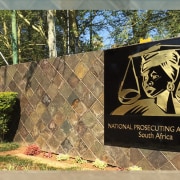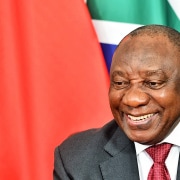|
Getting your Trinity Audio player ready...
|
By Thato Mahlangu
Tender irregularities and the lack of urgency in replacing a security company at a Durban hospital puts the lives of patients and staff at risk, warns a KwaZulu-Natal (KZN) based medical association.
The South African Medical Association’s (Sama) KZN branch said on 14 January 2020 it was worried about the violent incidents which recently claimed the life of a male patient at Clairwood Hospital in Durban. The man is said to have been killed while awaiting treatment in the male surgical ward on 10 January.
The Sunday Tribune reported that two armed men pretended to be visitors, walked into the ward, and shot the man twice in the head.
The association said it believes that there was inadequate security personnel at the hospital entrance at the time of the incident, which could have been prevented had the provincial department taken heed.
Ending of current tender contract
The current security company’s contract had ended and the new tender has not been finalised, claims the association.
“[We are calling for] the finalisation of the awarding of a new security tender as a matter of urgency,” said the association.
Ayanda Blessing Zulu, provincial secretary of the KZN National Education, Health and Allied Workers’ Union (Nehawu), said on 13 January 2020 the current security company, whose contract had ended (according to the association), had not had enough support to carry out its responsibilities. This seems to be a common occurrence in the province.
“This shocking incident reveals the gaps and inadequacies that underpins the security services of the public health institutions in the province,” Zulu said.
Safety of patients and staff raised
“This brazen attack and display of violence in our healthcare facilities poses a danger to the lives of our members and workers including patients who go to these institutions for medical attention. Nehawu remains concerned that security services in our healthcare facilities are inadequate and that it makes it easy for assailants to enter the premises armed to the teeth and be able to locate patient they want to finish off,” Zulu said.
“As Nehawu, we are deeply concerned about the safety and wellbeing of our members, workers and patients who depend on these health facilities for their day to day health needs.”
But the provincial department in a statement said the shooting happened in the first place because of cowardice on the part of the security guards and not because of diminished capacity as Nehawu claims.
“By that time, security guards had tried to close the main hospital gate. But the assailants threatened to shoot them, and then proceeded to force open the gate themselves, before fleeing from the scene.”
Tender irregularities
The association said there were some irregularities in the tendering process during the awarding of the previous tender by the hospital management.
“There was a leak from the department, someone internally sent us information during the first investigation which was conducted by the provincial department,” said Sama chairperson Dr Zanele Bikitsha.
In the statement, Bikitsha said the association calls for an investigation to be instituted following the irregular procedures. She said the KZN Health MEC should act against those implicated in the awarding of that irregular tender.
“Sama KZN would like to reiterate that the security of our members, other healthcare professionals, staff, the public, and patients are of utmost importance. We cannot allow a situation to continue where employees are subjected to unsafe working conditions while providing essential health services to the people of KZN,” she said.
Bikitsha said swift action should be taken by the department, and concluded timeously.
Failure by security companies to keep staff, patients safe
“This brutal gang-style execution at the hospital again raises concerns about the security at the institution as no weapons should have made it past security. We are left to again ask how safe our healthcare facilities are and, by implication, how safe our patients and healthcare providers are,” said Bikitsha.
Zulu said the union was calling for the department to insource security services since private companies have dismally failed to provide proper security to workers and patients.
“It is against this backdrop that we feel the provincial department has to own up and take full responsibility for the perpetual security lapses that have taken place and admit that they have dropped the ball when it comes to issues of safety and security.”
Corruption Watch’s work with tender irregularities
Public procurement processes are complex and transparency of the process is sometimes limited, therefore manipulation of tendering procedures is hard to detect. The manipulation of any tendering process may have bad, even detrimental effects on the public.
The procurement function itself must also provide value for money and must be carried out in a cost-effective way [but without endangering the health and safety of the public].
A section in our 2019 Analysis of Corruption Trends report reveals that procurement irregularities in municipalities continues to be widely reported, with 35.5% of the corruption cases speaking to this fact.
The report further reveals that allegations are levelled at officials, including municipal managers [in this case hospital managers] at times, are at the centre of corrupt procurement processes where clear intentions to exclude some bidders from attaining tenders which are kept for their friends, associates and relatives.
“Whistle-blowers continue to inform Corruption Watch (CW) of a number of corrupt acts that are plaguing health facilities across the country. Of the corruption reports we received in the first six months of 2019, 3.6 % are attributed to this focus area. We are still receiving information of nepotistic appointments and other related improper conduct related to employment, and the flouting of procurement processes.”
CW has learnt in the previous year that people employed at clinics and hospitals are at the centre of both graft and there is little to no external influence.
“Take the claims of procurement irregularities, for instance it is reported that employees in procurement offices will be awarded various tenders to companies which are owned and headed by those very same employees,” reveals the report.








